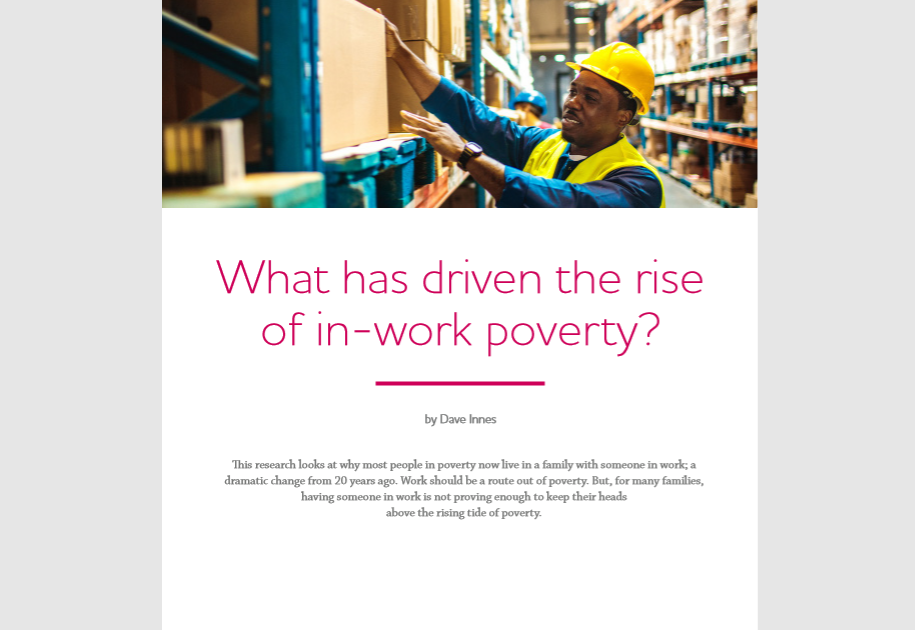Research: What has driven the rise of in-work poverty?
Key findings
- The rising proportion of workers being pulled into poverty is preventing record employment rates from helping those people escape poverty's grip.
- Raising the minimum wage isn't a substitute for a decent social security system and action to reduce housing costs.
- Alongside action to raise hourly pay, we need to enable people in low-income families to work as many hours as they would like to.
The research argues that, in order to reverse in-work poverty, we need to drive up family earnings through enabling people to work as many hours as they would like. We also need social security that provides an anchor against the currents of a changing labour market, and action to bring down the housing costs that currently eat into working families’ incomes.







